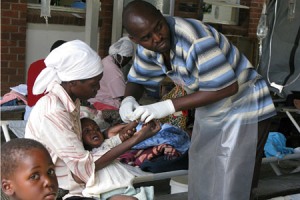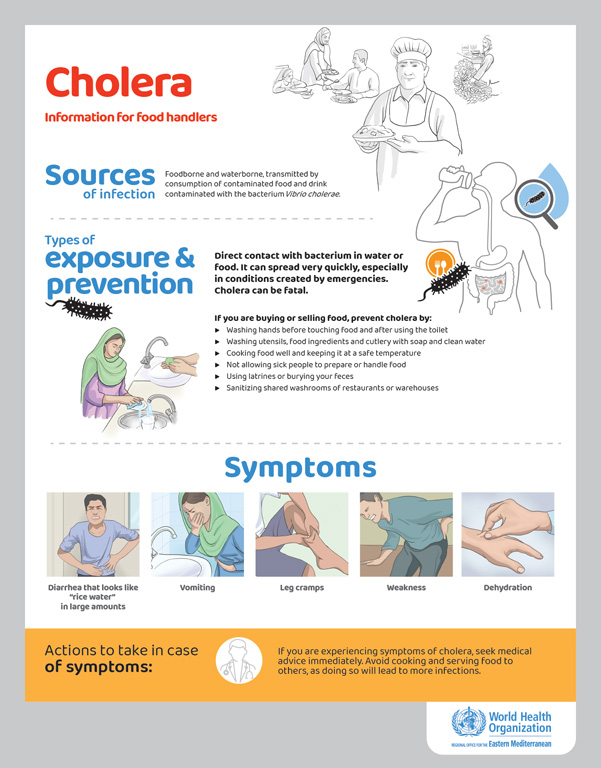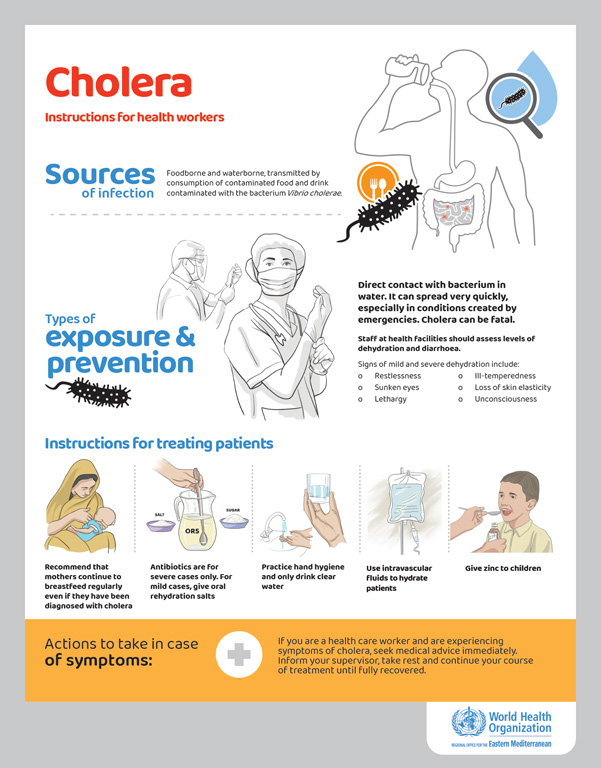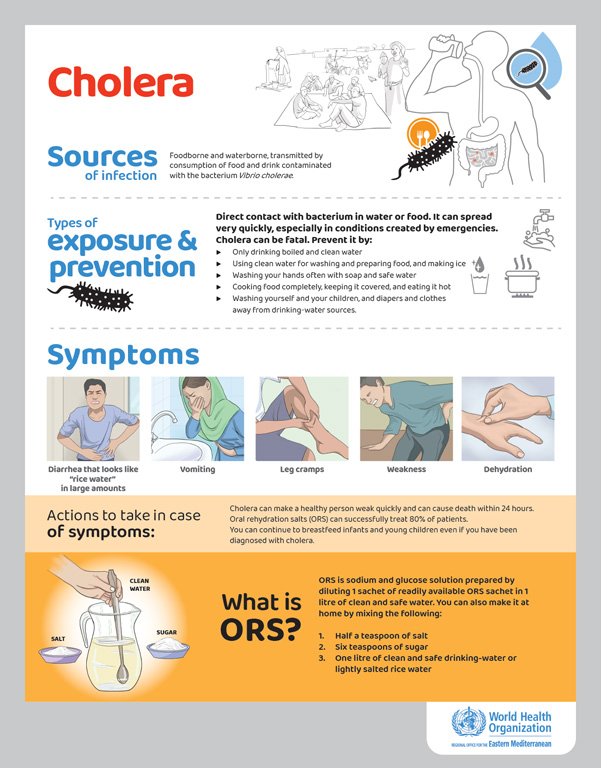Related topics
Information resources
Posters
Recent publications
Global defence against the infected disease threat - Chapter on cholera, pages 74-79 [pdf 7.05 Mb]
Cholera outbreak: assessing the outbreak response and improving preparedness [pdf 217kb]
First steps for managing an outbreak of acute diarrhoea [pdf 180kb]
Policy documents
WHA 64.15: Cholera: mechanism for control and prevention [pdf 17kb]
Links
Cholera
 Among people who develop symptoms, 80% have mild or moderate symptoms, while around 20% develop acute watery diarrhoea with severe dehydration. This can lead to death if untreated. Photo credit: WHO
Among people who develop symptoms, 80% have mild or moderate symptoms, while around 20% develop acute watery diarrhoea with severe dehydration. This can lead to death if untreated. Photo credit: WHO
Cholera is an acute diarrhoeal infection caused by ingestion of food or water contaminated with the bacterium Vibrio cholerae. Every year, there are an estimated 3 to 5 million cholera cases and 100 000 to 120 000 deaths due to cholera. The short incubation period of two hours to five days, enhances the potentially explosive pattern of outbreaks.
Cholera is an extremely virulent disease. It affects both children and adults and can kill within hours. About 75% of people infected with Vibrio cholerae do not develop any symptoms, although the bacteria are present in their faeces for 7–14 days after infection and are shed back into the environment, potentially infecting other people.
Cholera remains a major public health risk in the WHO Eastern Mediterranean Region. During the last decade, at least 14 out of 22 countries in the Region have reported cholera cases, often in epidemic proportions. Countries in the Region facing complex emergencies are particularly at risk, as they lack safe drinking-water and sanitation resources. The full extent of the burden of cholera in the Region is difficult to estimate due to weak surveillance systems in some endemic countries, in addition to underreporting of cases, although it is estimated that the number of cases may be around 188 000 per annum. Explosive outbreaks of cholera have been reported from Afghanistan, Djibouti, Iraq, Pakistan, Sudan, Somalia and Yemen in the last decade.
Effective and proven prevention and control measure for cholera are dependent on provision of adequate environmental health services, such as safe drinking-water, improved access to safe sanitation and health hygiene measure. The availability of oral cholera vaccines is offering hope for cholera prevention and control, particularly in situations where other conventional public health measures, such as improving the access to safe water and sanitation, cannot be scaled up rapidly due to conflict or other environmental factors.





